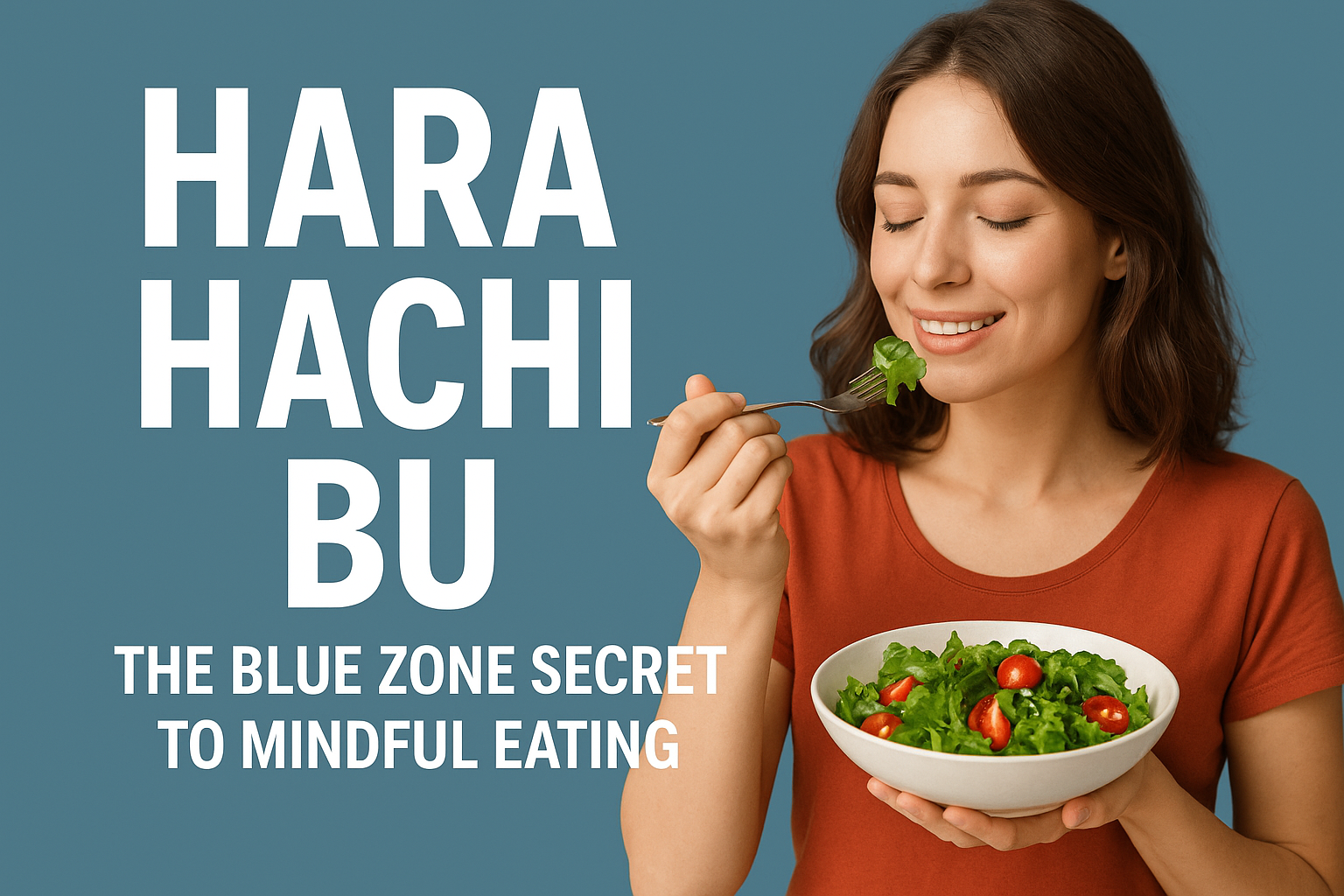Have you ever noticed that the people who live the longest often eat the simplest meals—and never to the point of feeling stuffed? In Okinawa, one of the original Blue Zones, there’s a centuries-old phrase that guides daily life at the dinner table: “Hara Hachi Bu”.
It translates to “Eat until you are 80 percent full”, and it may be one of the simplest yet most powerful habits you can adopt this summer.
What Is Hara Hachi Bu?
Hara Hachi Bu is more than a quaint saying—it’s a core cultural practice in Okinawa, Japan. It’s the reason you’ll rarely find people there groaning after a meal or struggling with post-lunch energy crashes. By stopping at around 80 percent fullness, they give their bodies the perfect balance of fuel without tipping into overconsumption.
This gentle calorie moderation, without the harshness of restrictive dieting, is linked to lower risk of chronic disease and greater life expectancy—two outcomes that mirror what we see across the world’s Blue Zones.
The Health Benefits
1. Weight Management Without Calorie Counting
When you stop eating before you feel completely full, your body has time to register satiety signals, helping to prevent overeating naturally.
2. Better Digestion
Overfilling your stomach can slow digestion and cause discomfort. Eating to 80 percent capacity gives your digestive system breathing room.
3. Steadier Energy Levels
Large, heavy meals can cause blood sugar spikes and afternoon slumps. Moderation helps maintain consistent energy throughout the day.
4. Mindful Eating Mindset
By tuning into your body’s signals, you foster a calmer, more conscious relationship with food—one that’s focused on nourishment, not just consumption.
How to Practise Hara Hachi Bu Daily
- Eat slowly: Put your cutlery down between bites.
- Pause mid-meal: Assess whether you’re actually hungry for more or simply eating out of habit.
- Use the 80 percent cue: Ask yourself, “Could I eat more?” If the answer is “Yes, but I don’t need to,” it’s time to stop.
- Start with plants: Begin meals with a vegetable-based starter to promote satiety before moving on to the main course.
Why This Habit Is Perfect for Summer
Summer brings more social meals, picnics, and tempting snacks—many of which are ultra-processed and high in added sugar. Adopting Hara Hachi Bu can help you enjoy these occasions without overdoing it. You’ll not only feel lighter but also avoid the sluggishness that often follows indulgent summer feasts.
The BlueZone Nutrition Connection
At BlueZone Nutrition, our philosophy is rooted in the habits of the world’s longest-lived communities—from Sardinia to Okinawa. Hara Hachi Bu perfectly embodies the balance, mindfulness, and respect for food that we believe leads to sustainable wellbeing.
It’s not about restriction; it’s about eating with intention.
A Quick Hara Hachi Bu-Inspired Meal Idea
Starter: Chilled gazpacho topped with fresh basil
Main: Lentil and roasted vegetable salad with a drizzle of extra-virgin olive oil
Dessert: A handful of seasonal berries
This meal is rich in fibre, plant-based protein, and antioxidants—yet light enough to leave you feeling comfortably satisfied, not stuffed.
Final Thoughts
If you want a summer wellness habit that’s effortless, culturally rich, and backed by science, Hara Hachi Bu is it.
Start today: slow down, listen to your body, and stop at 80 percent fullness. Your digestion, energy levels, and long-term health will thank you.
Written by
Milvia Pili, FNTP
Nutritional Therapist & Founder of BlueZone Nutrition
Born into a Sardinian family, Milvia blends timeless Blue Zone habits with modern nutritional science to help clients improve their health naturally.




